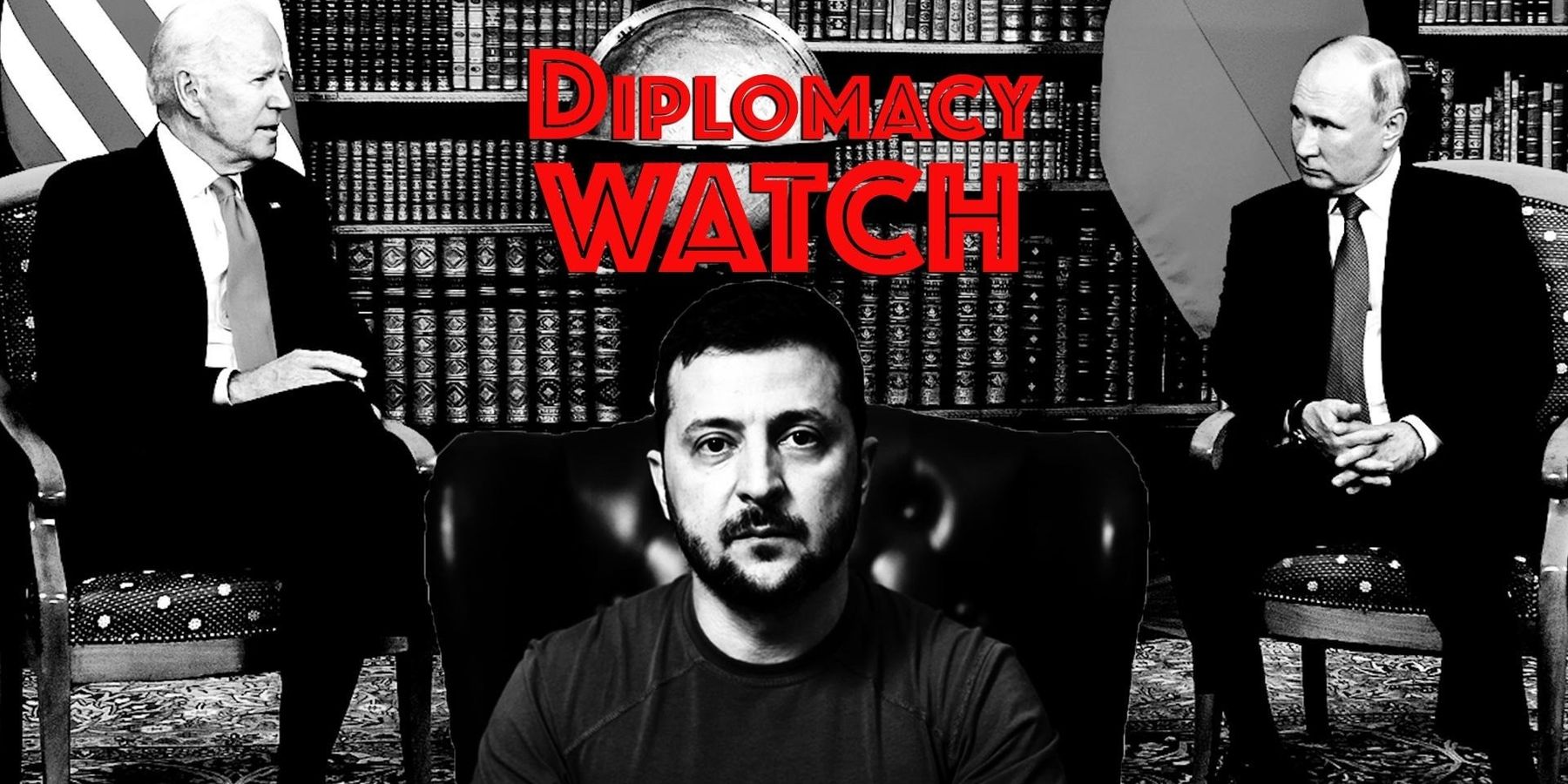President-elect Donald Trump has made Ukraine peace talks a focus of his foreign policy, previously saying he’ll get a Ukraine deal “within 24 hours” and readying his envoy Keith Kellogg for a fact finding/listening tour of Ukraine and European capitals first thing after inauguration.
But Russian officials don’t appear all together convinced by ideas that Trump and his team have been putting out in circulation, suggesting a steep hill to climb regarding Ukraine negotiations.
Namely, Russian Foreign Minister Sergey Lavrov posits that some of these proposals, if implemented, will simply pass the war effort on to Europeans while failing to address the conflict’s root causes.
“Judging from numerous leaks and Donald Trump’s interview with Time magazine on December 12, [the Trump team’s] idea is to suspend hostilities along the line of contact and transfer responsibility for confrontation with Russia to the Europeans,” Lavrov said in an interview with Russian News Agency TASS.
“We are not happy, of course, with the proposals made by members of the Trump team to postpone Ukraine's admission to NATO for 20 years and to station British and European peacekeeping forces in Ukraine.”
The idea of peacekeeping forces in Ukraine has reportedly been floated several times among the Trump team and European officials in recent months. “As long as Ukraine is not in NATO, this aspect can be considered,” Ukrainian president Volodymyr Zelensky had said, while emphasizing NATO membership was the only way to ensure Ukraine’s security against future attacks from Russia.
According to Lavrov, Russia instead wants agreements “that would eliminate the root causes of the conflict and seal a mechanism precluding the possibility of their violation." Lavrov also said Russia is open to restoring relations, but the U.S. must make the first move since it cut them off at the start of the war.
Meanwhile, the Biden administration is only shelling out more Ukraine aid on its way out, announcing $5.9 billion in military assistance and budget support on December 30. This includes HAWK air defense munitions, Munitions for National Advanced Surface-to-Air Missile Systems (NASAMS), Stinger missiles, and various ammunition packages.
“I’ve directed my Administration to continue surging as much assistance to Ukraine as quickly as possible,” President Joe Biden said in a statement. “At my direction, the United States will continue to work relentlessly to strengthen Ukraine’s position in this war over the remainder of my time in office.”
In other Ukraine war news this week:
As of January 1, Russia’s state-owned energy company Gazprom has halted gas supplies to Moldova amid a debt dispute between the two countries. Russia says Moldova owes $709 million; Moldova claims it owes $8.6 million, with former Energy Minister Victor Parlicov charging that "the Kremlin's real goal here is to destabilise Moldova and plunge it into chaos.” According to AP, Moldovans are bracing for possible energy shortages; the country has declared a state of emergency.
More broadly, Ukraine has halted Russian gas exports to Europe by refusing to renew relevant transit agreements, according to the New York Times. Ending an era of Russian dominance in the European gas market, Zelensky hailed the halt as “one of Moscow’s greatest defeats” on X. The European Commission says the EU is prepared for the expected change, yet European gas prices are already soaring in light of the halt. Hungary and Slovakia, which had relied on the now-closed route for nearly two-thirds of 2023’s gas demand, are likely to be among the most impacted by the change.
An Azerbaijan passenger plane crashed in Kazakhstan on Christmas day after rerouting from its original destination, Grozny in Chechnya, Russia, where it apparently came under fire from the ground. The crash killed the majority of passengers. In days since, how the plane was downed has become a source of controversy. Sources told Reuters that Russian air defenses downed the plane, with U.S. officials telling NBC the defense systems may have misidentified the plane amid a then-ongoing Ukrainian drone attack on the Grozny airport. Russia subsequently apologized for the incident taking place in Russian air space, but has not taken responsibility for it, angering Azerbaijani officials. Investigations by multiple countries are ongoing.
- A looming crisis in Moldova's breakaway state ›
- European 'peacekeepers' in Ukraine? A horrible idea. ›
- Ukraine and Europe can't afford to refuse Trump's peace plan | Responsible Statecraft ›
















